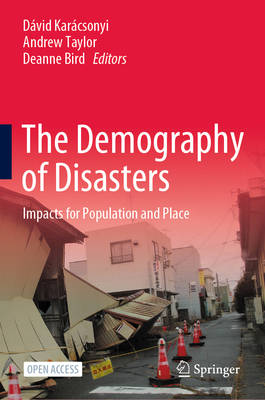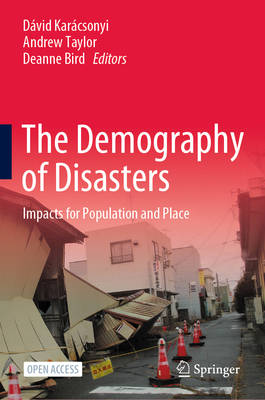
- Retrait gratuit dans votre magasin Club
- 7.000.000 titres dans notre catalogue
- Payer en toute sécurité
- Toujours un magasin près de chez vous
- Retrait gratuit dans votre magasin Club
- 7.000.0000 titres dans notre catalogue
- Payer en toute sécurité
- Toujours un magasin près de chez vous
The Demography of Disasters
Impacts for Population and Place
Description
This open access book provides worldwide examples demonstrating the importance of the interplay between demography and disasters in regions and spatially. It marks an advance in practical and theoretical insights for understanding the role of demography in planning for and mitigating impacts from disasters in developed nations.
Both slow onset (like the of loss polar ice from climate change) and sudden disasters (such as cyclones and man-made disasters) have the capacity to fundamentally change the profiles of populations at local and regional levels. Impacts vary according to the type, rapidity and magnitude of the disaster, but also according to the pre-existing population profile and its relationships to the economy and society. In all cases, the key to understanding impacts and avoiding them in the future is to understand the relationships between disasters and population change.
In most chapters in this book we compare and contrast studies from at least twocases and summarize their practical and theoretical lessons.Spécifications
Parties prenantes
- Editeur:
Contenu
- Nombre de pages :
- 268
- Langue:
- Anglais
Caractéristiques
- EAN:
- 9783030499198
- Date de parution :
- 18-09-20
- Format:
- Livre relié
- Format numérique:
- Genaaid
- Dimensions :
- 196 mm x 239 mm
- Poids :
- 544 g

Les avis
Nous publions uniquement les avis qui respectent les conditions requises. Consultez nos conditions pour les avis.





